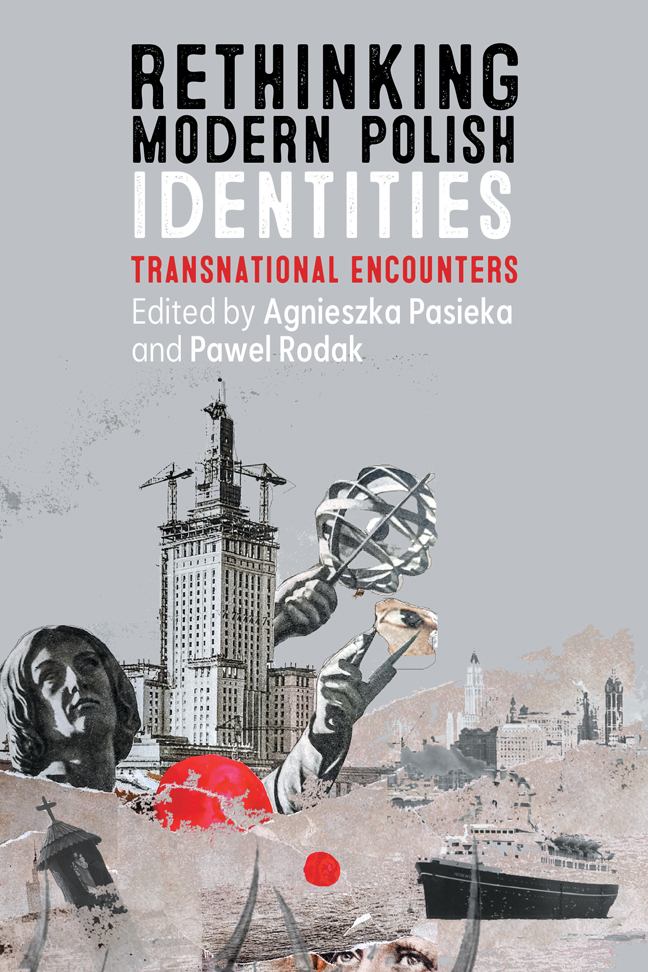Book contents
- Frontmatter
- Contents
- Acknowledgments
- Introduction: Polishness: A Story of Sameness and Difference
- Part One Redefining Polishness
- Part Two Identity in the Making
- Part Three Portraits and Performances
- Afterword: Polishness: A Time of Deconstruction, a Time of Reconstruction
- Notes on the Contributors
- Index of Names
- Index of Subjects
Six - Human Mobility and the Creation of a Transatlantic Polish Culture
Published online by Cambridge University Press: 10 January 2024
- Frontmatter
- Contents
- Acknowledgments
- Introduction: Polishness: A Story of Sameness and Difference
- Part One Redefining Polishness
- Part Two Identity in the Making
- Part Three Portraits and Performances
- Afterword: Polishness: A Time of Deconstruction, a Time of Reconstruction
- Notes on the Contributors
- Index of Names
- Index of Subjects
Summary
Polish social scientists have long portrayed migration as a net loss for the nation, a depletion of human resources needed for building an independent state. During much of the twentieth century, scholars working in the United States represented immigrants as dangerously “uprooted” from their communities of origin, while specialists in Poland lamented the depleted villages back home and miserable lives of countrymen abroad, themes that reflected ongoing concern about the loss of cultural capital via emigration. But human mobility also helped define Polishness in important ways, especially during the great labor migration from the 1870s to 1914. This chapter suggests that far from weakening the nation, the process of migration and return fostered new conceptions of Polishness to include wider categories of populations both at home and abroad. The transatlantic movement abroad “for bread” (za chlebem) crystalized a sense of national belonging for millions of small farmers and other uneducated residents of the Polish lands. The influence of circular migrants in particular, sojourning abroad for months or years only to return to their birth communities, has been underappreciated in much of the scholarship on mobility. In the Polish case, over two million countrymen left partitioned Poland between 1870 and 1914, and some 40 percent of them returned.
By considering this circular pattern of human movement to and from the Polish lands, I would like to challenge paradigms of migration studies that categorize transatlantic relocation as a disruption requiring a generation or more to stabilize. For Poles, I suggest, migration and return were the norm, especially for rural communities in Austrian Galicia and parts of the Russian-controlled Kingdom of Poland, where plot sizes were small, nonagricultural jobs scarce, and overpopulation prevalent. Far from harming the nation-building process, these sojourners remained connected through correspondence and remittances. Their contact with the growing Polonia community, which helped them navigate the difficult transition to life in North America, often reinforced their attachment to Polish customs and their sense of belonging to a broader transatlantic national entity. The resulting transformation of national subjectivity paved the way for a multiclass identity that found reflection in the newborn post–World War I Polish state.
Narrating Human Migration
A whole generation of anthropologists and sociologists working in the interwar Polish Second Republic turned to the legacy of prewar labor migrations, conducting extensive research on its long-term impact for Polish society.
- Type
- Chapter
- Information
- Rethinking Modern Polish IdentitiesTransnational Encounters, pp. 113 - 132Publisher: Boydell & BrewerPrint publication year: 2023



